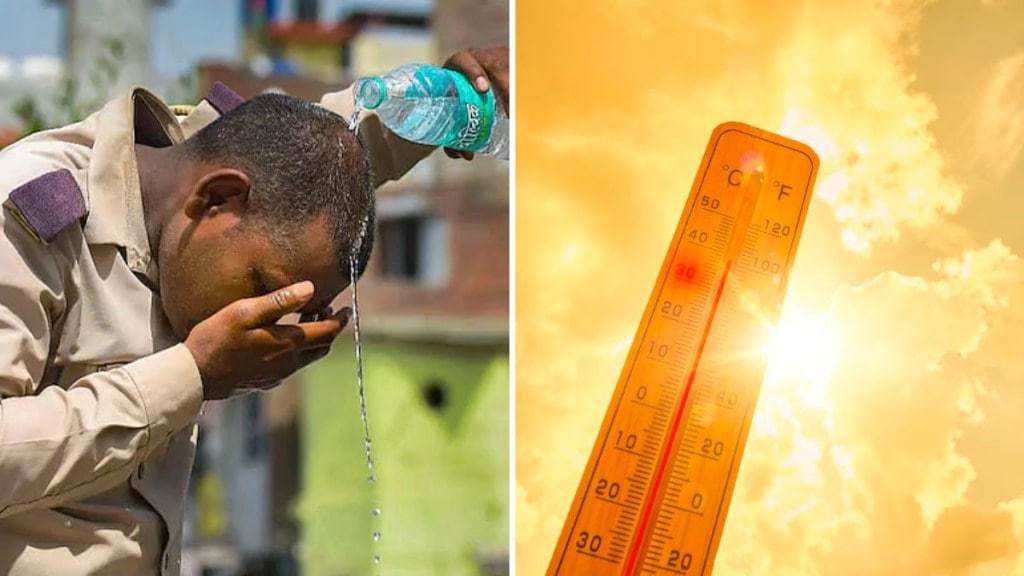As Delhi continues to sizzle under extreme heat, stepping outdoors feels like walking into an oven. People are seeking shade, staying in the AC, and sipping cool drinks in to stay safe. But experts warn that heatwaves do more than just cause sunburns and rashes. They can quietly impact your heart, eyes, mood, and more. From dehydration and heart attacks to fatigue and infections, this kind of weather can take a toll on your body, especially if you don’t take precautions.
1. Heart Attacks
Heatwaves increase the risk of heart attacks, especially among those with underlying health conditions or poor lifestyle habits.
“During extreme heat, the body loses a lot of water through sweating. This leads to dehydration, which makes the blood thicker and increases the heart’s workload,” explains Dr Pravin Kahale, Consultant, Cardiology, Kokilaben Dhirubhai Ambani Hospital, Mumbai.
He adds, “When blood flow is redirected to the skin to cool the body, it reduces circulation to vital organs like the heart. This can trigger heart attacks, particularly in those with pre-existing conditions or a family history of heart disease.”
A 2023 study in The Lancet Planetary Health found that extreme temperatures were linked to a significant increase in cardiovascular-related deaths worldwide, especially in low and middle-income countries.
2. Dehydration
Extreme heat leads to excessive fluid loss, often before we even feel thirsty. Dehydration not only causes fatigue and headaches but also increases the risk of kidney problems and low blood pressure. Electrolyte imbalances can also trigger muscle cramps, dizziness, and irregular heartbeats.
3. Eye infections and irritation
Ophthalmologists have noted a sharp rise in Dry Eye Syndrome and conjunctivitis during summer. “Dry air, high temperatures, and pollutants aggravate both these conditions. We’re seeing more people with red, itchy, gritty eyes that worsen with AC use or outdoor exposure,” says Dr Rajesh Fogla, Sr Consultant, Apollo Hospitals, Hyderabad.
Avoiding peak heat, using lubricating eye drops, wearing sunglasses, and maintaining hygiene are key preventive measures.
4. Heatstroke and heat exhaustion
Spending too long in the sun without hydration or shade can lead to heatstroke, a medical emergency that causes body temperature to spike beyond 104°F. Symptoms include confusion, rapid pulse, and loss of consciousness. The elderly and children are most at risk and especially vulnerable.
5. Respiratory issues
Poor air quality during heatwaves can worsen asthma, bronchitis, and other respiratory conditions. Hot air traps pollutants closer to the ground, creating a “pollution dome” effect. People with pre-existing lung conditions are advised to stay indoors during peak hours.
6. Skin problems: rashes and infections
Heat rashes, fungal infections in skin folds, and sunburns are common heatwave complaints. Excess sweating clogs pores and allows bacteria to thrive. Wearing breathable cotton clothes and keeping the skin dry can help prevent these issues.
7. Mental fatigue and mood disturbances
Heat doesn’t just make you feel tired physically, it affects your mind too. Studies have linked higher temperatures to mood changes, irritability, and even increased suicide risk. A 2022 study published in Nature Climate Change found that the risk of mental health issues rises during prolonged heat events, especially when combined with poor sleep and disrupted routines.
Why heatwaves are a growing public health concern
According to the World Health Organization, the number of heatwave days has more than tripled over the last 30 years. In India alone, over 30 cities issued red-alert warnings for heat stress in 2025.
Dr Kahale explains, “We’re seeing more heart attacks and strokes during summer than ever before, and not just in older adults. Younger people are at risk too due to poor fitness, stress, smoking, and unmanaged conditions like diabetes.”
How to stay safe during a heatwave: Life-saving tips
- Drink at least 2.5 to 3 litres of water daily
- Avoid alcohol and caffeine
- Skip outdoor workouts between 10 am and 4 pm
- Wear sunglasses and breathable clothes
- Keep chronic conditions under medical control
- Use eye drops and wash hands often
- Stay indoors if the air quality is poor
The heatwave of 2025 isn’t just breaking temperature records, it’s pushing the human body to its limits. According to the World Health Organization 2024 report, global heat-related deaths are expected to rise drastically, especially due to cardiovascular and respiratory issues.
By 2050, the WHO estimates that over 250,000 deaths per year may be caused by climate-related health risks, with heatwaves being a leading factor.
Extreme heat is no longer just a seasonal nuisance, it’s a real, rising threat to our hearts, eyes, lungs, and overall well-being. Hence, awareness, early precautions, and better planning are key to staying safe.







